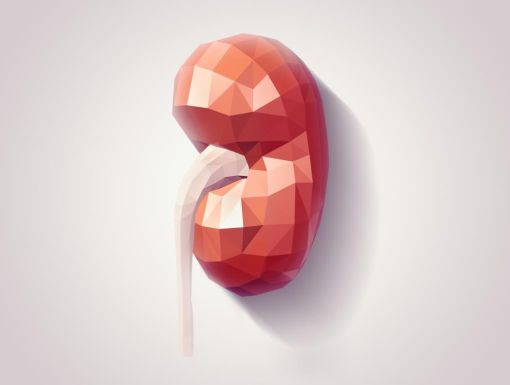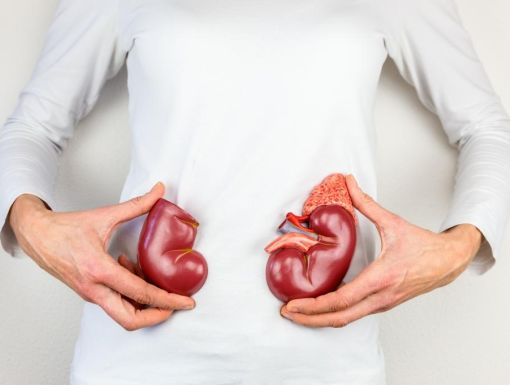
Chronic Kidney Disease: Understanding and Managing Care
Though a chronic kidney disease (CKD) diagnosis can be overwhelming, know that you are not alone. Managing this condition is a long-term commitment, but with proper care and support, you can take control of your health and improve your quality of life.
At Ochsner, we believe that innovation leads to proactive care and better outcomes for our patients. Regular communication with a healthcare team, including a nephrologist (specialized kidney doctor), will be necessary. It is best to have a tailored treatment plan that is personalized for you and essential to your good health. Enrolling in the Ochsner Digital Medicine program, which has now expanded to support individuals diagnosed with CKD, can be a valuable tool to ensure better health.
Since 2015, Digital Medicine has helped thousands of members manage high blood pressure or Type 2 diabetes. With this expansion of care for CKD, as well as for heart failure, the program will provide added support to keep your kidneys working longer and reduce your risk of heart attack and stroke.
What is chronic kidney disease?
First, let’s understand your condition: Your kidneys perform vital functions. Their most important job is to clean and filter your blood by removing waste like acids, extra water, and some medications. The extra water and the waste products flow into your bladder, where it leaves your body as urine (pee). This process results in a healthy balance of your body’s water, salts and minerals. Kidneys also help keep your red blood cell count normal, regulate blood pressure, and even keep your bones strong. When you have CKD, it means your damaged kidneys are not working as they should. Instead of filtering out waste, it goes back into your bloodstream.
There are five stages of the disease, from Stage 1 (mild) to Stage 5 (known as “end-stage renal disease”). These stages are defined by your estimated glomerular filtration rate, a measurement of how well your kidneys are cleaning your blood. The progression of this disease can lead to dialysis or a kidney transplant due to a severe loss of kidney function. If it gets bad enough, it will become life-threatening.
A CKD diagnosis often happens alongside other conditions like diabetes or high blood pressure (also known as “hypertension”). According to the CDC, diabetes or high blood pressure represent three out of every four new cases of CKD. As these are two of the most common chronic, or ongoing, conditions, many people are managing the same challenge. A large amount of the population is at greater risk for developing CKD. By staying informed and working with an Ochsner care team, you can make a meaningful difference in your health.
How does high blood pressure and diabetes affect chronic kidney disease?
- Diabetes: Diabetes is the leading cause of CKD across the globe. This is because high blood sugar harms the blood vessels, which damages your kidneys’ filtering system. With time, your damaged kidneys can no longer filter out the toxins and extra fluid from your blood. Protein in the urine is often one of the first signs that someone is developing kidney disease because healthy kidneys would not let your body lose certain proteins. Keeping diabetes under control is one of the most important actions you can take to slow the progression of CKD and keep your kidneys working longer.
- High blood pressure: High blood pressure also damages blood vessels, and like diabetes, this harms the kidneys’ filtering system. Extra fluid stored in these damaged blood vessels can raise your blood pressure, creating a dangerous cycle. It can take years for high blood pressure to lead to symptoms of damaged kidneys. However, uncontrolled blood pressure will lead to symptoms such as headache and blood in urine. Keeping high blood pressure under control is also one of the most important ways to slow progression of CKD and keep your kidneys working longer.
What are chronic kidney disease symptoms?
You may have CKD even if you have not experienced symptoms. Often, even those who have been diagnosed with CKD feel totally normal. Thus, many people will already have the disease long before they know it; bloodwork and urine tests are the only ways to be sure of CKD. If the condition has advanced, to the point of needing dialysis, here are some symptoms you may have that you should report to your doctor or your healthcare provider:
- Swelling in the legs, ankles, hands or feet
- Low energy, fatigue
- Loss of appetite, nausea
- Difficulty sleeping
- Passing less urine or darker urine
- Pain in the lower back
- Muscle cramps
What are chronic kidney disease treatment options?
Damage caused by CKD is irreversible, but there are changes you can make that can slow the progression. Keeping diabetes and high blood pressure well controlled is one of the most important ways to keep your kidneys working longer. Other modifications include lifestyle changes such as eating healthy, low-salt, whole foods and making time for daily physical activity. Avoiding sugar, high-fat foods, tobacco and alcohol also helps. Your doctor may also prescribe certain medications or encourage you to lose weight.
If your CKD develops into kidney failure, you will have to be put on dialysis, in which a machine works as an artificial kidney to clean and filter your blood. This machine connects to you through an access point that is created by a surgeon as an outpatient procedure. If you are put on a list to get a kidney transplant, you may be started on dialysis while you wait for the transplant.
Join Ochsner Digital Medicine
If you have been diagnosed with high blood pressure, Type 2 diabetes, CKD or heart failure, we encourage you to learn more about Digital Medicine to determine if you’re eligible and it’s a fit for you. It is vital that you take steps to keep these conditions controlled to keep your kidneys working longer.
As a Digital Medicine participant, you’ll receive care from a specialized Ochsner team that works with your doctor to:
- Monitor your blood sugar and/or blood pressure and make changes to your medications if your readings are trending off track
- Create a personalized care plan to protect your heart and kidneys
- Monitor important labs to ensure you stay in your best health.
Enrolling in the Ochsner Digital Medicine program will help you manage your health between visits to the doctor. You’ll receive a digital blood pressure cuff or a digital glucometer to take readings from home using your smartphone or tablet. This care team will also encourage you to stay up to date with annual screenings and provide lifestyle support.
With Ochsner Digital Medicine, you will get the support you need to be proactive in your kidney health. The program’s goals are simple—reduce hospital admissions, slow disease progression and improve patient health outcomes.
CKD can be a challenge — both physically and emotionally. But Ochsner Digital Medicine will give you the support you need to take care of your kidneys and ensure you stay in your best health.
With Digital Medicine, 4 out of 5 members achieve their health goals within 6 months. Learn more at Digital Medicine | Ochsner Health.



